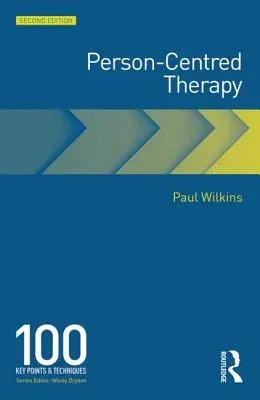Person-centred therapy, rooted in the experience and ideas of the
eminent psychotherapist Carl Rogers, is widely practised in the UK and
throughout the world. It has applications in health and social care, the
voluntary sector and is relevant to work with people who are severely
mentally and emotionally distressed. As well as being a valuable
sourcebook and offering a comprehensive overview, this edition includes
updated references and a new section on recent developments and
advances.
The book begins with a consideration of the principles and philosophy
underpinning person-centred therapy before moving to a comprehensive
discussion of the classical theory upon which practice is based. Further
areas of discussion include:
The model of the person, including the origins of mental and emotional
distress
The process of constructive change
A review of revisions of and additions to person-centred theory
Child development, styles of processing and configurations of self
The quality of presence and working at relational depth
Criticisms of the approach are addressed and rebutted and the
application of theory to practice is discussed. The new final section is
concerned with advances and developments in theory and practice
including:
Counselling for Depression
The Social Dimension to Person-Centred Therapy
Person-Centred Practice with People experiencing Severe and Enduring
Distress and at the 'Difficult Edge'
A Review of Research
Throughout the book, attention is drawn to the wider person-centred
literature to which it is a valuable key.
Person-Centred Therapy will be of particular use to students, scholars
and practitioners of person-centred therapy as well as to anyone who
wants to know more about one of the major psychotherapeutic
modalities.

